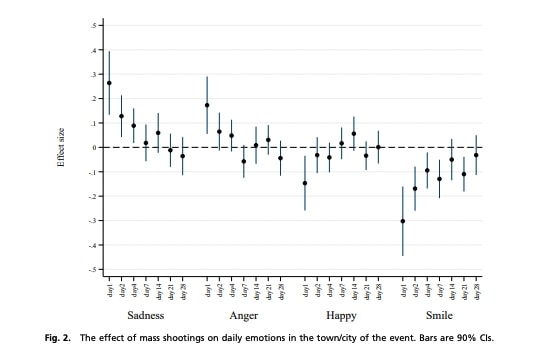
Media coverage in the aftermath of mass shootings frequently documents expressions of sadness and outrage shared by millions of Americans. This type of collective emotion can be a powerful force in establishing shared objectives and motivating political actions.
Yet, the rise in mass shootings has not translated into widespread legislative progress toward gun control across the nation. This study is designed to shed light on this puzzle by generating causal evidence on the temporal and geographic scale of collective emotional responses to mass shootings.
Using a unique continuous survey on Americans’ daily emotions without reference to specific events, our empirical strategy compares the daily emotions of residents interviewed after to those interviewed before 31 mass shootings within the same city or state where the event occurred. We found that the emotional impact of mass shootings is substantial, but it is local, short-lived, and politicized. These results suggest that if policy reform efforts are to draw on collective emotional responses to these events, they will likely have to start at the […]












I could not even read this article without a magnifying glass. I never did get through it all because it hurt my eyes, however I am very concerned about all the guns in the USA, and the consequences thereof.